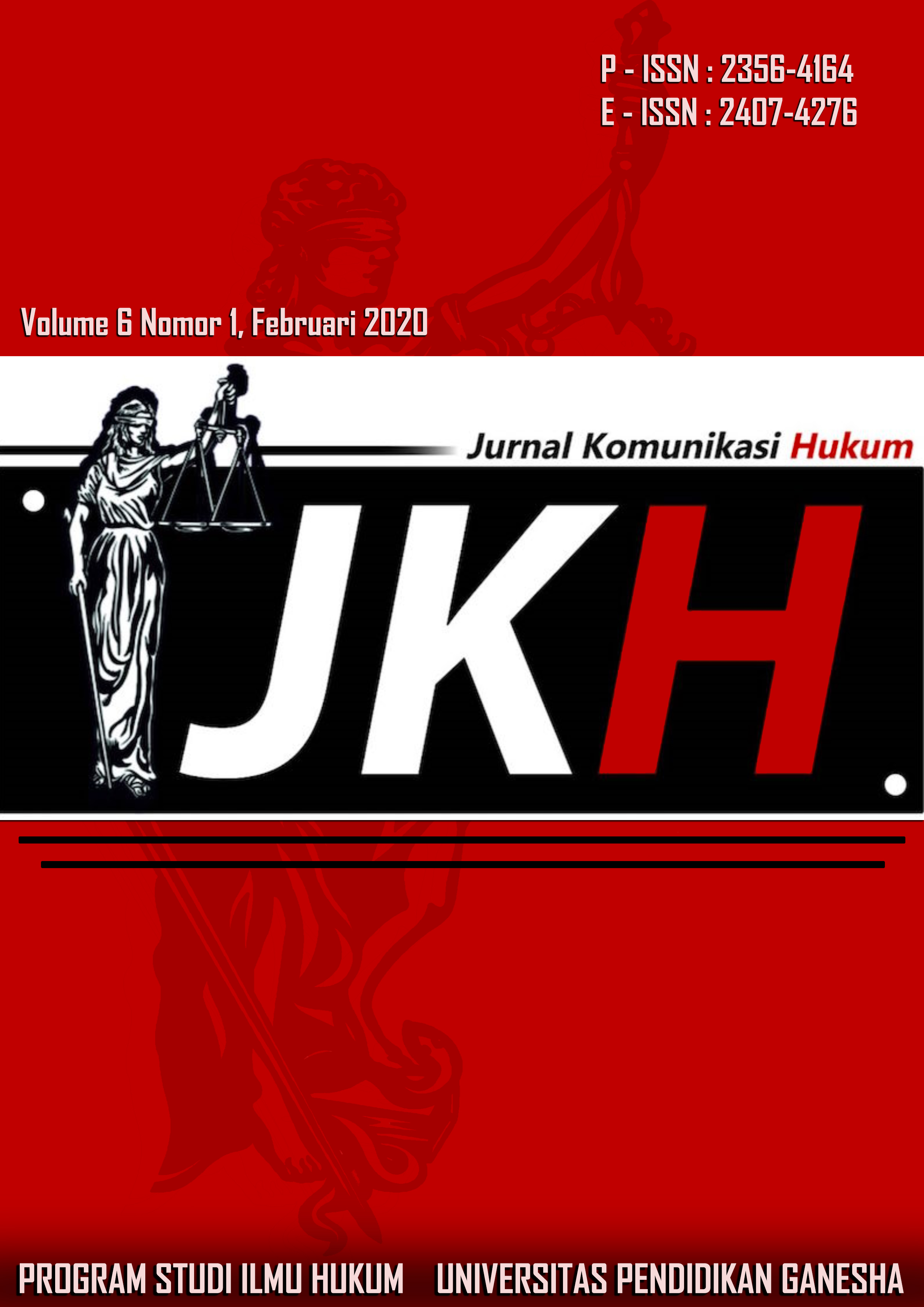KOMPETENSI PERADILAN TATA USAHA NEGARA TERHADAP PENGAWASAN PENYELENGGARAAN PEMERINTAHAN DITINJAU DARI PERLUASAN ASAS-ASAS UMUM PEMERINTAHAN YANG BAIK PASCA BERLAKUNYA UNDANG-UNDANG NOMOR 30 TAHUN 2014 TENTANG ADMINISTRASI PEMERINTAHAN
DOI:
https://doi.org/10.23887/jkh.v6i1.23439Abstract
This article discusses Administrative Court’s control function in governance toward implementation of government’s duties. As we know, Administrative Court has its role to resolve any administrative disputes between government and citizens. The aims of this article is to know deeply the competency of Administrative Court after the enactment of Law Number 30 Year 2014 about Government Administration as the law regulates main material sources of state administrative law. This is due to the addition of general principles of good governance’s types to file a tort claim for an unlawful act committed by government. Moreover, general principles of good governance become a legal instrument for Judges of State Administration Court to review the legality of any decision of State Administration. In the Article 10 Law Number 30 Year 2014 is stated that there are eight types general principle of good governance. However, Judges has a right to look broader and find another types beyond that eight in order to make legal decision. Therefore, Law Number 30 Year 2014 becomes foundation of the main material law of state administrative procedure law. In the other hand, Law Number 30 Year 2014 requires government to publish every administrative decree based on provisions in law and general principles of good governance.
Downloads
Published
How to Cite
Issue
Section
License
Authors who publish with this journal agree to the following terms:- Authors retain copyright and grant the journal right of first publication with the work simultaneously licensed under a Creative Commons Attribution License that allows others to share the work with an acknowledgement of the work's authorship and initial publication in this journal.
- Authors are able to enter into separate, additional contractual arrangements for the non-exclusive distribution of the journal's published version of the work (e.g., post it to an institutional repository or publish it in a book), with an acknowledgement of its initial publication in this journal.
- Authors are permitted and encouraged to post their work online (e.g., in institutional repositories or on their website) prior to and during the submission process, as it can lead to productive exchanges, as well as earlier and greater citation of published work (See The Effect of Open Access).
Authors who publish with this journal agree to the following terms:
- Authors retain copyright and grant the journal right of first publication, with the work [SPECIFY PERIOD OF TIME] after publication simultaneously licensed under aCreative Commons Attribution License that allows others to share the work with an acknowledgement of the work's authorship and initial publication in this journal.
- Authors are able to enter into separate, additional contractual arrangements for the non-exclusive distribution of the journal's published version of the work (e.g., post it to an institutional repository or publish it in a book), with an acknowledgement of its initial publication in this journal.
- Authors are permitted and encouraged to post their work online (e.g., in institutional repositories or on their website) prior to and during the submission process, as it can lead to productive exchanges, as well as earlier and greater citation of published work (See The Effect of Open Access).












